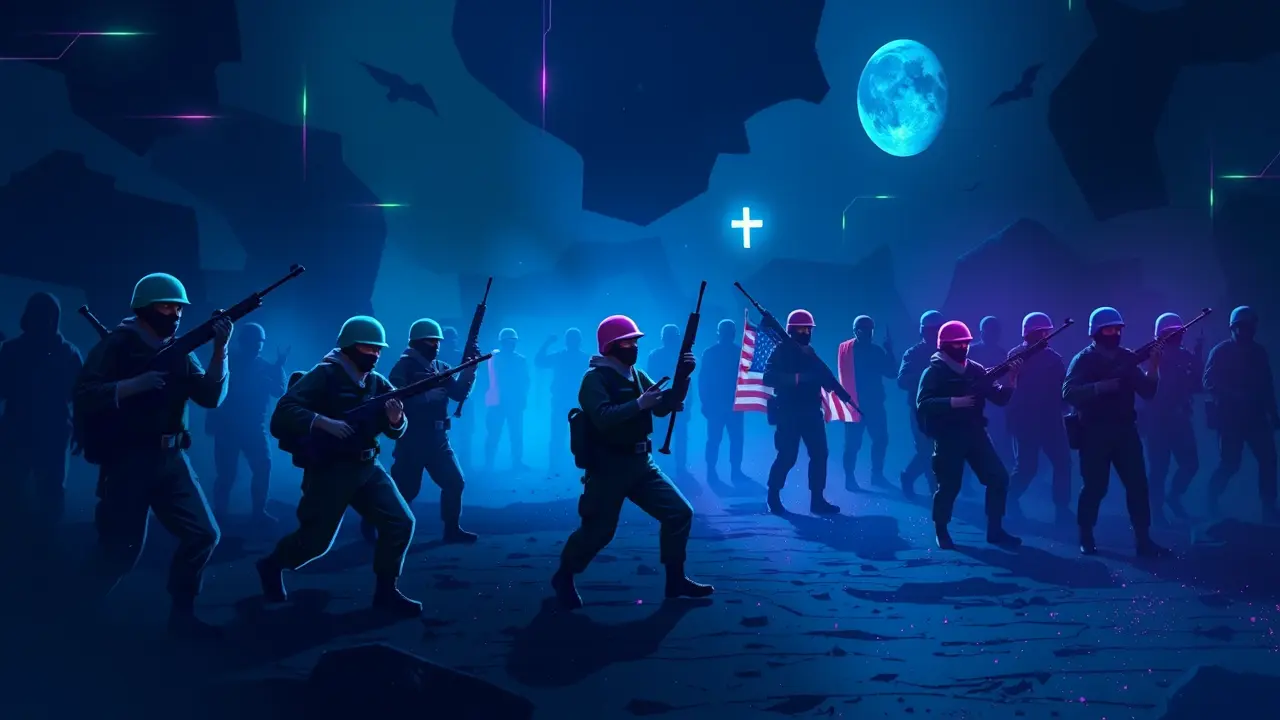
Politicsconflict & defenseMilitary Operations
Trump Orders Military Action Against Nigerian Militants Over Christian Killings
RO
Robert Hayes
20 hours ago7 min read
In a stark declaration that has sent ripples through the international diplomatic community, President Donald Trump has ordered military action against Nigerian militants, explicitly citing the defense of persecuted Christians as the casus belli. This unilateral move, bypassing the traditional channels of congressional debate and deep consultation with allies, marks a significant escalation in U.S. foreign policy, drawing immediate parallels to historical interventions justified on humanitarian grounds.The administration's framing of the conflict as a clear-cut case of religious persecution, however, stands in sharp contrast to the complex on-the-ground realities documented by regional experts and organizations like the Council on Foreign Relations. These analysts uniformly assert that the violence perpetrated by groups such as Boko Haram and the Islamic State West Africa Province (ISWAP) is fundamentally driven by a broader insurgency aimed at destabilizing the Nigerian state, with victims indiscriminately drawn from both Muslim and Christian communities.The Nigerian government, already grappling with a fragile security apparatus and widespread internal criticism of its handling of the militant threat, has responded with a mixture of cautious public acknowledgment and private consternation, viewing the U. S.intervention as a profound infringement on its sovereignty and a potential catalyst for further radicalization. This strategic gambit by the Trump administration echoes the doctrinal shifts of prior presidencies—from Clinton’s humanitarian intervention in Kosovo to Bush’s pre-emptive democracy promotion in Iraq—yet it arrives amidst a vastly different global order, one characterized by rising Sino-Russian influence in Africa and a growing weariness in the American public toward endless foreign entanglements.The decision to militarize a humanitarian crisis raises profound questions about the efficacy of force in resolving deeply rooted sectarian and political tensions, the potential for mission creep in a region with multiple armed factions, and the long-term consequences for U. S.-Africa relations. As military assets are repositioned and intelligence sharing is intensified, the international community watches with bated breath, concerned that this new front could inadvertently bolster militant recruitment narratives of a Western crusade, thereby exacerbating the very suffering it purports to alleviate. The coming weeks will be a critical test of this high-stakes strategy, a modern chapter in the age-old debate over when and how a superpower should wield its sword in the name of conscience.
#featured
#US military
#Nigeria
#Islamist militants
#Trump
#action
#Christians
#security
Stay Informed. Act Smarter.
Get weekly highlights, major headlines, and expert insights — then put your knowledge to work in our live prediction markets.
© 2025 Outpoll Service LTD. All rights reserved.